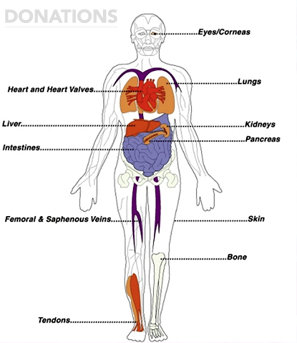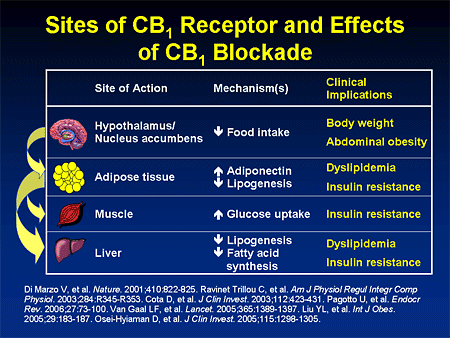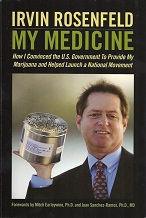According to results of an animal study published in Journal of Leukocyte Biology in June 2015, the cannabinoid delta-9-tetrahydrocannabinol (THC) may be a safe and effective alternative or add-on therapy in the prevention of organ and tissue transplant rejection.
What is Organ Transplantation?
 When a person’s organs or tissues begin to fail as a result of disease, a replacement from a donor may be needed in order to increase lifespan. Some commonly transplanted organs and tissues include the kidneys, liver, heart, and bone marrow. While some organs (like the heart) can only be donated when someone has passed away, others (like a kidney, part of the liver, bone marrow) can be donated by living donors. According to the U.S. Department of Health and Human Services,
When a person’s organs or tissues begin to fail as a result of disease, a replacement from a donor may be needed in order to increase lifespan. Some commonly transplanted organs and tissues include the kidneys, liver, heart, and bone marrow. While some organs (like the heart) can only be donated when someone has passed away, others (like a kidney, part of the liver, bone marrow) can be donated by living donors. According to the U.S. Department of Health and Human Services,
- 123,032 people are waiting for an organ
- 21 people will die each day waiting for an organ
- 1 organ donor can save up to 8 lives
What is Transplant Rejection?
Each one of us has an individualized immune system– our available defenses are affected by our genetics and what kind of environments we’ve explored as we age. By recognizing foreign particles or infectious agents as “non-self”, our immune systems help to protect our bodies from disease. “Non-self”agents may be infectious (like bacteria or viruses), but can also be cells that come from another person who has their own individualized immune system and response that is much different than our own.
“Together, our research shows, for the first time to our knowledge, that targeting cannabinoid receptors may provide a novel treatment modality to attenuate host-versus-graft disease and prevent [transplant] rejection.”
Our “innate immunity” does a superb job of protecting us– it is characterized by a quick response by first-line defenses (like the skin, our largest organ) and stimulation of non-specific immune cells that work to destroy potentially harmful substances that have entered the body’s environment.
But when there’s a security breach too strong or large for the innate immune system to handle, backup is called in– this is our “adaptive immunity“, which is characterized by a slower, more specific, and longer term response by specialized cells (like T-cells and B-cells) to the “non-self” agents. This is the type of immunity that comes into play with transplant rejection.
While organ and tissue transplantation is helping people to live longer than ever before, as mentioned, there are risks involved in receiving parts of another person’s body. There are various types of rejection, but one of the major problems is that the recipient’s specialized adaptive immune system (e.g. T-cells) recognizes the new donor organ or tissue as “non-self”, and starts to attack and destroy it.
For this reason, it is essential that the recipient’s immune system is as similar as possible to the donor’s (which is why screening and matching prior to transplantation is absolutely necessary). However, this can be very difficult to coordinate given how unique each person’s immune system is, and how quickly organ failure can result in death. Given these factors, along with the reality that the need for organs far exceeds the available supply, most patients often only have one chance with a donor organ– rejection is therefore a devastating occurrence that frequently results in death. Additionally and importantly, the medications currently available to prevent transplant rejection can cause harmful effects of their own, including severe infection and devastating tissue damage, so finding safe treatment alternatives is paramount.
Can THC Help to Prevent Organ Transplant Rejection?
By injecting donor spleen and skin cells into recipient mice (thereby using them as models for humans undergoing organ transplantation), the researchers found that recipient mice treated with THC were less likely to reject the new tissue than those who were left untreated. According to the study, mainly through activation of CB1 receptors, THC helped to prevent rejection through several mechanisms:
- prevention of increases in the number of recipient T-cells in the recipient’s lymph nodes (i.e. lower chance of rejection of donor tissue)
- decrease in inflammatory response signals
- stimulation of myeloid-derived suppressor cells (which act to decrease the recipient T-cell response and prevent rejection)
- increased length of survival of donor skin cells
What Do The Results From This Study Mean?
 This study adds to a growing body of evidence that cannabinoids are useful in modulating/reducing inflammatory processes, which are implicated not only in transplant rejection, but also in autoimmune disorders, cancer, and other debilitating diseases.
This study adds to a growing body of evidence that cannabinoids are useful in modulating/reducing inflammatory processes, which are implicated not only in transplant rejection, but also in autoimmune disorders, cancer, and other debilitating diseases.
“Together, our research shows, for the first time to our knowledge, that targeting cannabinoid receptors may provide a novel treatment modality to attenuate host-versus-graft disease and prevent [transplant] rejection” says the team of researchers who lead the study.
Given the serious side effects associated with the current treatments used to prevent transplant rejection, along with the highly favorable safety profile of THC, further exploration of THC’s utility in prevention of this process has the potential to lengthen millions of lives and protect the unique, altruistic, and essential gift that organ donors leave to new recipients every day.
Read more http://www.medicaljane.com/2015/06/09/new-study-thc-may-help-to-prevent-transplant-rejection/
Latest
Coronavirus Strikes Massachusetts Cannabis Company Employees
Reassessing the Essential: Cannabis in the Time of a Pandemic
5 Reasons To Try Aspen Valley CBG Flower (30% Off)
High Times Cannabis Cups Go Virtual In Wake Of Coronavirus Pandemic
Drug Enforcement Administration Proposes Plan To Expand Cannabis Research
Ghana Legalizes Cannabis For Medicinal And Industrial Uses
The cheapest legal weed in Canada: Discover these cannabis ‘value brands’
Cannabis and coronavirus: Here’s what you need to know
cannabis designs
The Best Of
WHO Rules CBD Should Not Be a Scheduled Drug

Dr Cristina Sanchez PhD video interview on medical marijuana and cancer

Biochemist Dennis Hill interview; Cannabis oil as a cure for cancer.

The unofficial World Record holder for cannabis smoking part 1




